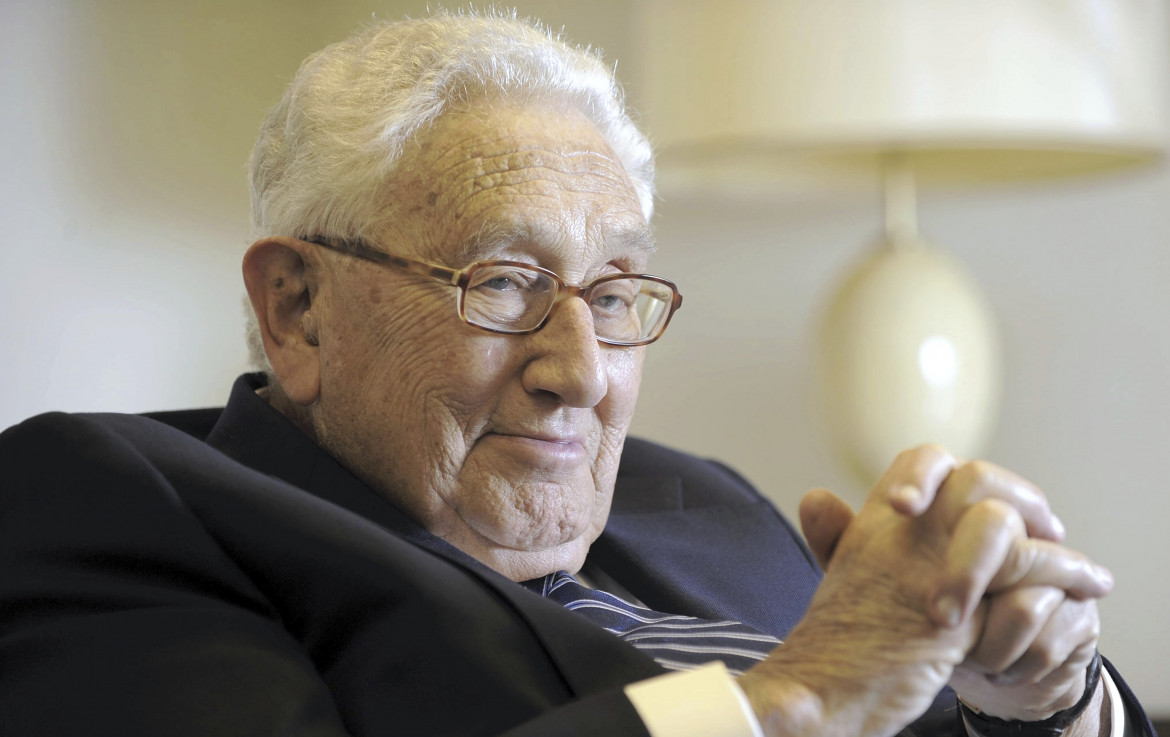Commentary
Kissinger, a war criminal for the 20th century
Kissinger's century is over, and not because of his physical death, but because of the beginning of a very different phase of world capitalism. Balance of powers has been replaced by systemic chaos.

Kissinger hated disorder. Not only because he was German, and as a result was bothered by sausages without sauerkraut or red wine paired with fish, but also because his cultural and political background demanded it: he had written his doctoral thesis on Metternich, the Austrian chancellor of the Restoration. The problem he was obsessed with was how to make the structure of international relations stable, and he devoted himself to this task for 70 years.
He was able to do this not because he had a “tremendous” brain or lived an “inimitable” life (the kind of nonsense that was rife on the websites of Italian newspapers on Thursday), but because his immense power over American foreign policy came from the trust put in him by the president who chose him, Richard Nixon. This confidence was reinforced by Kissinger’s opportunism and the fact that he was the only one who had a clear idea of how the United States could remain the hegemonic power on the planet in the post-1968 years.
His idea had two points. First: empires need to have tranquility within. Accordingly, the war in Vietnam, Cambodia and Laos, which was causing youth riots in the United States, needed to end. Second, empires need an international order, and order depends on a certain (balanced) distribution of forces but also on legitimacy, so that order must be acceptable to its protagonists, such as the Soviet Union and China. In Kissinger’s view, all states that are strong enough to matter must be included in the international order.
On the first point, things are clear: Kissinger was a war criminal. The bombings of Cambodia and North Vietnam leave no room for interpretation, nor is there any doubt that thousands upon thousands of young Americans died in the rice fields for nothing more than a face-saving “decent interval” between the inevitable departure of the Marines and the dissolution of the puppet government of South Vietnam on April 25, 1975.
His cynicism paid off, however: the pacifist front became weaker, Nixon was reelected in 1972, there were nuclear arms reduction agreements with the USSR and the start of dialogue with China. Kissinger had no issues at all surviving the Watergate scandal and Nixon’s resignation, and was promptly appointed Secretary of State by the Ford administration.
These results corresponded perfectly to his idea of a world order: an arrangement where only the big powers must make the decisions, while the “little guys” must fall in line. Unforeseen developments or accidents of history, such as the Yom Kippur War in the Middle East or the election of Allende in Chile, disturbed him deeply and he did his best to eliminate them.
In return for the legitimacy they got from this system, China and Russia needed to do their part, keeping their allies or sympathizers in check and perhaps contributing to the prosperity of American capitalism. Kissinger was not an economist, but he certainly didn’t fail to realize how beneficial a world market with an extra 1.5 billion proletarians at the ready would be for American corporations, a real boon that has lasted virtually to this day.
Nowadays, however, Kissinger’s century is over, and not because of his physical death, but because of the beginning of a very different phase of world capitalism than the one in which he operated between 1969 and 1977. It is a phase defined not by a balance of powers, but by systemic chaos. A time when war between the “big boys” has become once again not only thinkable, but actually possible. A time when many of the situations that Kissinger had laboriously tried to keep under control, for example Palestine and Taiwan, have blown up or are in danger of doing so soon.
The systemic chaos is not the result of the incompetence of America’s rulers – although that is certainly a reality – but of a different phase of capitalism, in which its predatory aspect and its ability to enslave, or ignore, national political systems are at their peak. Kissinger’s dream was a modern version of the old “concert of powers,” an 1815 Congress of Vienna transported into the 20th century and perhaps even into the 21st: a project now light years removed from today’s reality.
In a sense, the notorious diplomat “chose” to make his exit before he could fully realize he had failed and could not make up for it by giving his brand of good advice to Joe Biden or Xi Jinping. He was a backward-looking man, and the fraying of the American political order, the powerlessness of states in the face of techno-feudalists like Elon Musk and Jeff Bezos, and the aggressiveness of former vassals like Turkey and Saudi Arabia could hardly tickle his fancies.
Originally published at https://ilmanifesto.it/il-ragazzo-del-secolo-scorso on 2023-12-01
